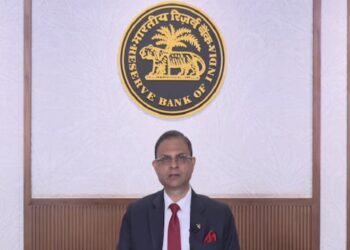New Delhi, 18 December 2024: PwC’s latest ‘Global Economic Crime Survey 2024 – India Outlook has unveiled alarming trends concerning financial and economic fraud within Indian organizations. The survey data shows that 59% of the organizations have encountered incidents of fraud over the past two years, exceeding the global average of 41% and reflecting a 7% increase from the 2022 survey.
A key concern identified is procurement fraud, which has mounted as a critical issue, with 50% of respondents flagging it as a predominant challenge—this represents a notable 21% rise compared to the global sentiment.
The findings indicate a paradigm shift; in 2022, 47% of businesses surveyed cited customer fraud as the principal concern.
On a global scale, cybercrime remains a top concern for 44% of businesses.
Puneet Garkhel, Partner and Leader of Forensic Services at PwC India, commented: “Historically one of the oldest economic crimes, procurement fraud entails the illicit manipulation of procurement processes for organizational gain. This year, half of our respondents in India pinpointed it as their foremost worry. Given its disruptive nature, procurement fraud exceeds various industries, mandating a robust integrity framework for the procurement process, which is integral to maintaining corporate reputation.”
Regarding preventive measures, 52% of Indian companies are leveraging data analytics to counter procurement fraud, analyzing transactions both pre- and post-deal (46%).
However, only 37% of organizations have implemented real-time payment monitoring systems ability to block suspicious activities.
Alarmingly, only 44% of respondents employ data analytics to detect atypical bidding patterns.
Moreover, the survey highlights that approximately 33% of economic crimes are attributed to corruption and bribery, with 26% of Indian respondents ranking it among their top three disruptive economic crime concerns in the last 24 months.
82% of Indian participants showed confidence in their compliance program’s ability to mitigate corruption risks, 20% acknowledged an uptick in corrupt practices over the past year, and 34% reported a decrease.
The survey on financial and economic fraud further reveals that a significant number of companies (34%) have yet to conduct anti-corruption/anti-bribery audits of third-party vendors, with 24% indicating a lack of such audits in the last two years and 10% stating they had never undertaken such assessments.
In instances of corruption, 46% of Indian organizations consistently perform root-cause analyses.
Concerning third-party interactions, 52% of Indian business leaders express confidence, with 26% very confident, in their organization’s capabilities.
However, 13% have yet to implement a third-party risk management program. Notably, 62% reported having conducted an enterprise-wide fraud risk assessment in the preceding year, and an additional 15% plan to initiate this within the next year.
The adoption of third-party risk management systems, including risk scoring, exceeds the global average, with 56% in India compared to 54% globally.
The survey additionally highlights a critical concern regarding forced labor across sectors; the survey shows only 16% of Indian companies are actively addressing this issue, while 24% of organizations are still evaluating.




















